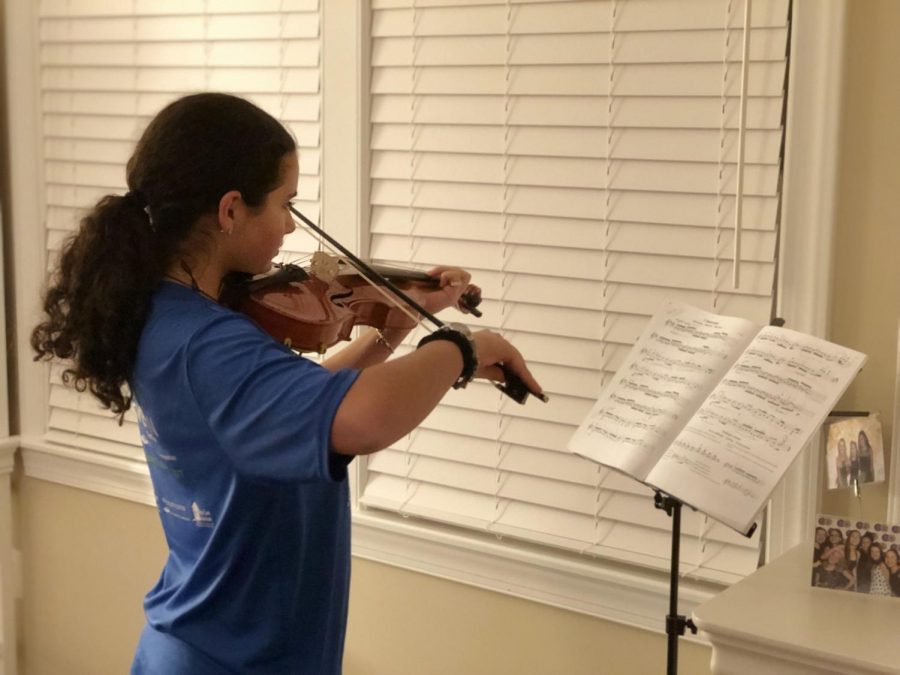Music is instrumental to life
Photo courtesy of Jessica Gallo
Freshman Jessica Gallo practicing violin, after school.
December 6, 2018
On a typical afternoon, I come home from track practice after a long day at school, eat dinner and head upstairs to start my long haul of homework. But before I take out my laptop, notebooks and planner, I do something that instantly relaxes me, making the transition to homework a little bit easier: I play the violin.
I am a violinist. The violin has been a part of my life since I was four years old and has provided me with countless benefits throughout the years. Everyone should learn to play an instrument; it is simply enjoyable and provides multiple emotional and intellectual benefits.
Playing an instrument is a huge stress reliever. Whether it’s learning something new at a lesson, or practicing for a half an hour after school, I am able to focus on one thing that makes me happy and helps me unwind both my body and mind.
Music has been proven to be calming and relax the mind, as well as provide physical benefits. Listening to music is proven to decrease stress hormones by lowering your heart rate and blood pressure.
Music doesn’t just relieve stress: according to the National Educational Longitudinal Study, high school music students have been shown to hold higher GPAs than non-musicians.
Playing an instrument also provides different skills, compared to the ones learned in a school environment. Over the years, music has made me more patient and confident and allowed me to be more focused and organized. These skills developed independently, and have helped shape my identity.
Musicians also are shown to have greater mental alertness, shown in a research study from the University of Montreal. The study also indicated that learning an instrument improves auditory and comprehension skills, as well as strengthening and enlarging the long-range connections within our brains that stimulate our nerves.
Practicing different styles of music on the violin, such as classical and pop songs, has made me a more creative musician, student and overall person. By incorporating different styles of playing into my everyday practicing, I learned how to combine different ideas into one; this not only applies to music but my schoolwork too.
It is also proven that playing an instrument improves hand-eye coordination. Playing has significantly strengthened my overall coordination to the point that I can play songs off the top of my head, after a few tries, give or take.
Practicing an instrument is also known to improve memory through the constant repetition and focus needed to play. The more a piece is played and imprinted into your mind, the stronger your memory will become.
Altogether, instruments are associated with joy and relaxation because my brain is stimulated and occupied. The violin has benefited me in school and my everyday life; it simply puts my body and mind at ease. Everyone should learn to play an instrument and gain the several benefits that it will undoubtedly provide.








